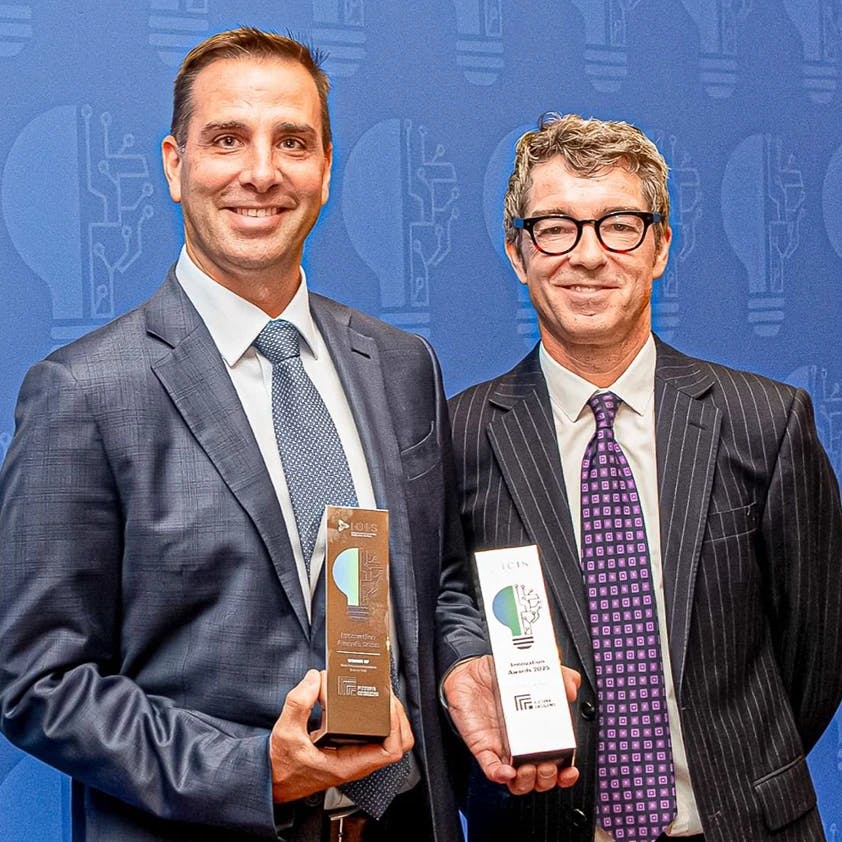Genomatica Setting Up Commercial Supply Chain for Plant-based Nylon
10.23.25

SAN DIEGO – Roughly 91 million tons of textile waste is produced around the world each year, with 11% of all plastic waste coming from clothing and textiles, according to the United Nations Environment Programme.
A significant portion of that plastic textile waste is due to synthetic fibers used in the fashion industry such as polyester, elastane and nylon, which are all produced using fossil fuel-based materials.
With fashion companies on the hunt for more environmentally friendly materials that also have a cheaper supply chain than petrochemical-based synthetics, Genomatica is taking steps to hasten the commercialization of its plant-based nylon-6 polymer via a partnership with the Sojitz Corporation.
“It’s extremely difficult to develop bio-manufacturing solutions that can compete head-to-head on a cost basis in the existing chemical markets,” Genomatica CEO John Gugel said. “Those are markets that have been optimized and commoditized over many, many decades, and now you come in with a brand new, high-tech biotech solution, it’s not for the faint of heart.”
Nylon-6 is one of the most common synthetic fibers used in textile manufacturing and is often found in items like outdoor clothing, military materials and automotive parts. It’s also typically produced with carbon from fossil fuel-based sources or recycled materials, which faces challenges of collection and quality.
Genomatica, or Geno, for short, developed a proprietary fermentation method to convert carbon from plant-based sugars into caprolactam, a building block solution in the manufacture of nylon-6.
According to Gugel, widespread commercialization of Geno’s plant-based nylon would place the company into a $22 billion industry with an annual demand of some 7 million tons.
“Bio-nylon is super exciting,” Gugel said. “One, it’s finally something that everybody understands right away when they hear about it, but also it’s a massive market opportunity.”
Partnerships, New Markets Fuel Alternative Materials Growth
Gugel joined Geno in 2022 as the company’s executive vice president of ventures to lead the company’s effort to manufacture and commercialize a plant-based alternative to palm oils used in cosmetics and personal care products.
Geno partnered with global cosmetics and personal care companies L’Oréal, Unilever and the Kao Corporation for the joint commercialization venture, known as Future Origins.
“These materials are traditionally sourced from palm-based materials, and palm-based materials have supply chain limitations, deforestation concerns, biodiversity concerns,” Gugel said. “So these major consumer products companies are looking for alternative supply chains.”
In the time since he joined Geno, Gugel was appointed company president in 2023 and CEO last year.
The company has also established commercial plants in Vietnam, in partnership with Korean chemical company Hyosung TNC, and Iowa through a partnership with Cargill and HELM AG, both for the manufacture of Geno’s plant-based 1,4-Butanediol, which is often used as an industrial solvent or in the manufacture of plastics.
Most recently, Geno formalized its relationship with the Tokyo-based trading company Sojitz, which had previously provided financial support for Geno’s demonstration-scale industrial process for its nylon-6 manufacturing.
Gugel said Geno intends to work with Sojitz going forward to establish its first commercial manufacturing plant for nylon-6, with the latter assisting in lining up investors and potential product offtakers.
“They have a track record of being well-connected throughout the global chemicals industry, and they have also taken steps in recent years in other initiatives of their own that don’t involve Geno to invest in projects or programs aimed at bringing sustainable solutions to the chemical industry,” he said.
The expansion of Geno’s commercial manufacturing apparatus will now include the global 1,4-Butanediol market, with an estimated demand of around 3 million tons per year; the nylon-6 market with its 7-million-ton demand and the 3-million-ton market for Future Origins’ palm oil replacements.
Gugel argued that all three products are used in items like textiles and beauty care products that are close to the consumer and often have customer bases that are swayed by a product’s sustainability as long as it’s priced competitively.
As a result, he added, Geno is more attractive to investors because its end markets are simple and straightforward.
“When you tell somebody we’re going to be able to substitute the alcohol that’s sourced in palm oil with our solution in your shampoo, they get it,” he said. “Or the next pair of spandex-constructed clothing that you buy could be enabled with plant-based nylon instead of petroleum-based nylon; people get that. … It’s just an easier story to understand.”
Genomatica
FOUNDED: 1998
CEO: John Gugel
HEADQUARTERS: San Diego
BUSINESS: Industrial biomanufacturing
EMPLOYEES: Around 65
WEBSITE: genomatica.com
CONTACT: christine@glunzstrategies.com
NOTABLE: Genomatica raised $118 million in Series C funding in 2021.

